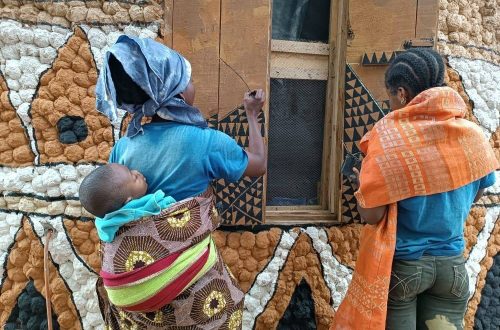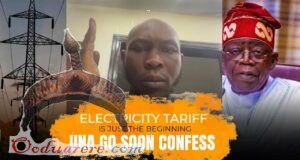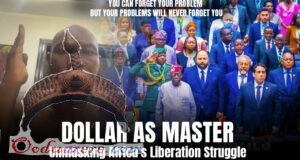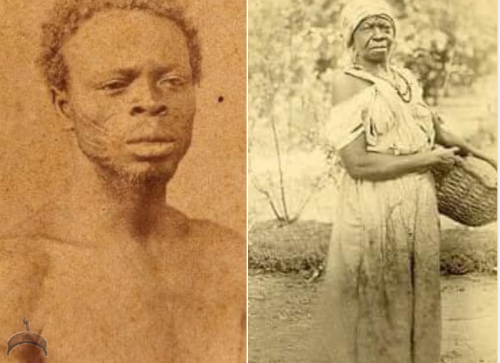The child is highly valued in indigenous Oodua (Yoruba) culture. As I look at the images sent to me today by the Akodi Orisa artists, I noticed the way the child is firmly tied to the back of the mother, and thought of the following proverbs about children.
If you know other proverbs about children (ọmọ), please add them to the comments,
Ọmọ ẹni kò ṣèdí bẹ̀bẹ̀rẹ̀ ká fìlẹ̀kẹ̀ sídǐ ọmọ elòmíràn: no matter how tiny the buttock of one’s child, we don’t abandon our child and place beads around the waist of other people’s children.
Òjò kì í pa ọmọ adìyẹ lójú ìyá ẹ̀: the rain does not beat the chicken while the mother-hen looks on.
Bí ọmọ ẹní dára ká wí, kì í ṣe pé ká fi ṣe aya: If your child looks beautiful, saying so does not mean you want to marry her.
Ọmọ tí yíò jẹ Àṣàmú, kékeré ni yíò ti má a ṣẹnu ṣámúṣámú.
Bí ọmọ ẹní dára ká wí, kì í ṣe pé ká fi ṣe aya: If your child looks beautiful, saying so does not mean you want to marry her.
Ọmọ tó nawọ́ là á gbé: only a child who raises the arms up gets lifted up.
Ọmọ laṣọ: Children are robes.
A di gàárì sílẹ̀ ọmọ ewúrẹ́ ń yọjú: We place a saddle on the ground, and the baby goat is volunteering.
Ọmọ àjànàkú kì í ya aràrá; ẹni erín bí lerin ń jọ: an elephant doesn’t birth a dwarf; the child of an elephant resembles an elephant.
Ọmọ burúkú kò yá lùpa: You don’t beat a bad child to death.
Ọmọ tí a kò kọ́ ni yíò gbé ilé tí a kọ́ tà: the child left untrained will squander the parents’ property.
O yá; add ya own proverb.

 Ọmọ Oòduà Naija Gist | News From Nigeria | Entertainment gist Nigeria|Networking|News.. Visit for Nigeria breaking news , Nigerian Movies , Naija music , Jobs In Nigeria , Naija News , Nollywood, Gist and more
Ọmọ Oòduà Naija Gist | News From Nigeria | Entertainment gist Nigeria|Networking|News.. Visit for Nigeria breaking news , Nigerian Movies , Naija music , Jobs In Nigeria , Naija News , Nollywood, Gist and more








